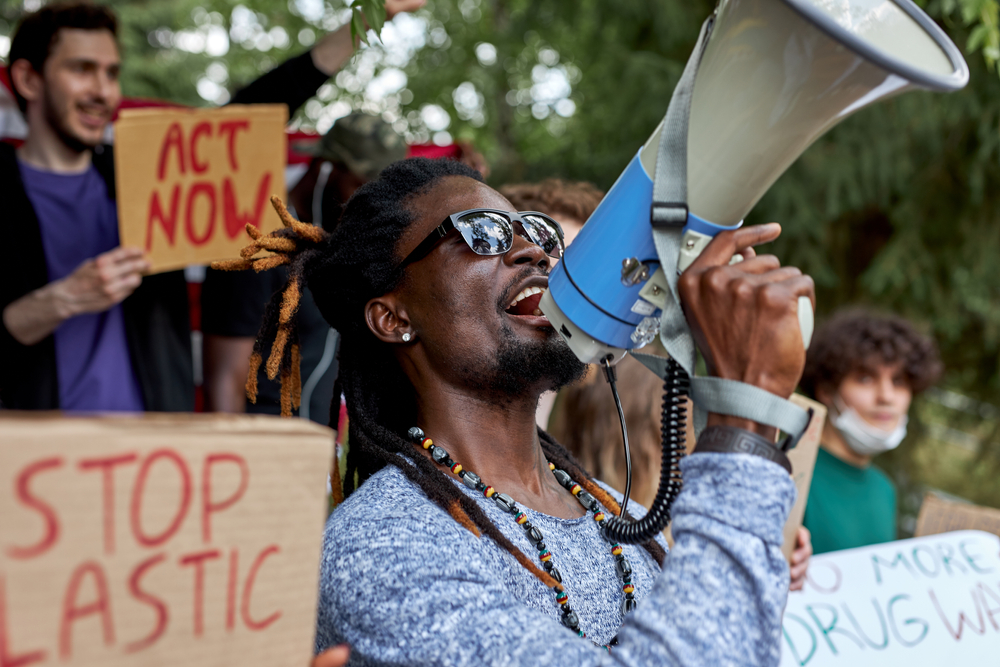Family Foundations Collaborate for Local Grants on Climate and Equity

This was originally published by Drawdown Georgia and is re-posted here with permission
What if several family foundations came together with a shared vision to jointly support a grant program for climate solutions and equity in Georgia? A new collaboration puts a fresh lens on the challenges and the solutions at hand.
Family Foundations: Each one is different
Early on in my philanthropy career, I heard a cliché that stuck with me. “If you’ve met one family foundation, you’ve met…one family foundation.”
As with any cliché, it’s a gross oversimplification, but it has important elements of truth. Family foundations, by their nature, are uniquely tied to the characteristics and quirks of the founder and her or his family. That is certainly true of the family foundation I lead, and it’s a good thing, because it means that Ray Anderson’s legacy lives on through our work.
Foundation Grant Collaboration: A Rarity
As a result, though, no two family foundations are exactly alike, and that is the main reason why collaboration isn’t our strong suit. We each have our own ways of doing business. We fund different philanthropic causes, we fund different organizations addressing those causes, and we evaluate prospective grantees differently. Some of us prefer one-time grants to fund capital projects, while others seek out funding relationships that will last decades. Some of us take a metrics-based approach to evaluating success, while others do so qualitatively or relationally. Some of us have a large staff, while other family foundations are run entirely by the family members. With all of these differing variables, it’s much easier for foundations to make grants in isolation, rather than doing so collaboratively.
Should we try harder to collaborate? I think so, for two primary reasons. First, we often ask our grantees to collaborate. We see it as a strength when they are well connected within their sector and when our funding enables them to partner with others who are doing good work. If we value it when grantees collaborate, shouldn’t we hold ourselves to the same standard?
The Urgency of Climate Solutions + Equity
Even more importantly, foundations need to be better collaborators because so many of our grantmaking causes are growing more urgent. This is especially true when it comes to the issues of equity and climate change.
Climate change impacts all of us, but we don’t experience those impacts in an equal way. As temperatures and sea levels continue to rise and extreme weather events like hurricanes become more common, the disparities in how well different communities are able to face and recover from the effects of climate change will grow unless swift action is taken.
Why focus grants on climate and equity?
In September 2021, the Environmental Protection Agency released an in-depth study on climate and equity, “Climate Change And Social Vulnerability In The United States.” The study examined the impacts of climate change on four socially vulnerable groups: low-income Americans, BIPOC communities, Americans without a high school diploma, and adults over the age of 65.
Across the board, the study found that minorities are the most likely of these groups to live in areas that are projected to face the worst impacts of climate change. Specific findings from this study include:
-
Black adults ages 65 and up have the most disproportionately high risk of living in areas with the highest projected increases in deaths caused by the impacts of climate change.
-
Climate change is expected to result in an annual increase of 2,500 cases of childhood asthma nationwide.
-
Black children are at the highest risk of living in areas with the greatest projected increases in asthma diagnoses caused by climate change.
-
BIPOC and low-income individuals are up to 59% more likely to live in areas where extreme temperatures are projected to cause the highest increases in deaths compared to non-minorities and those with higher incomes.
Disparities like these are the reasons why the climate justice movement was born, which calls upon all of us to solve for equity and climate at the same time.
Announcing the Drawdown Georgia Climate Solutions and Equity Grant
Here in Georgia, a group of five family foundations is helping to answer the call for climate justice, and we are doing it collaboratively.
Using the Drawdown Georgia research as a framework, we have committed to funding a collective $900,000 over the next two years for work in Georgia that will advance climate solutions and prioritize equity. This collaboration is called the Drawdown Georgia Climate Solutions and Equity Grant, and we will begin accepting letters of introduction on August 1. At its core, this program will empower Georgia’s low-income, BIPOC communities, increasing access to the benefits of advancing climate solutions.
In Georgia in particular, we have a long and tragic history of marginalizing communities along racial lines, and it is imperative that we work to heal those divides while reducing our state’s carbon emissions. And as a group of funders, we see the need to put resources into the hands of the community-based organizations that know best how to advance climate solutions and improve lives in these places.
The Ray C. Anderson Foundation is excited to be a part of this collaboration, along with partners at the R. Howard Dobbs, Jr. Foundation, The Wilbur & Hilda Glenn Family Foundation, the Kendeda Fund, and The Sapelo Foundation. We are united in aspiring to climate justice in Georgia, and we hope our grants will make a meaningful difference toward that end.
We invite you to learn more and help get the word out about this important grant opportunity focused on climate solutions and equity.
John Anderson Lanier is the executive director of the Ray C. Anderson Foundation and a founding member of Drawdown Georgia.
The views and opinions expressed in individual blog posts are those of the author(s) and do not necessarily reflect the official policy or position of the National Center for Family Philanthropy.
